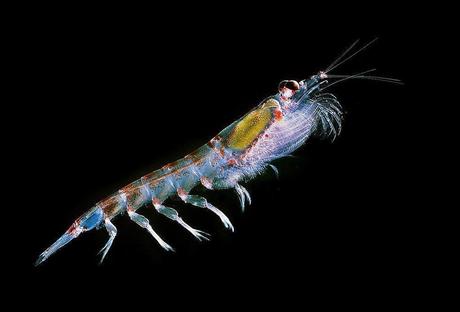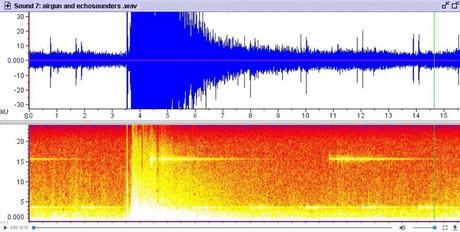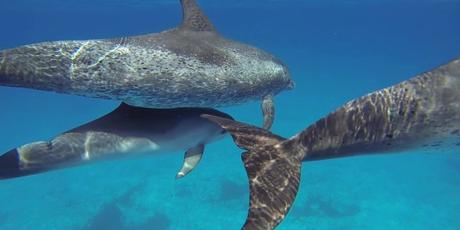GR: Creatures of the oceans are no threat to us, but we readily injure and kill them in our search for a chance to acquire material wealth. We behave as if the Earth has infinite capacity to produce and support life. Of course, we know it does not. (Trump’s position on seismic airgun blasting.)

Krill represent a vital food source for many marine predators, including large whales. In the study, seismic blasts completely wiped out krill larvae. Wikimedia Commons (CC BY-SA 3.0)
“Seismic airguns exploding in the ocean in search for oil and gas have devastating impacts on zooplankton, which are critical food sources for marine mammals, according to a new study in Nature. The blasting decimates one of the ocean’s most vital groups of organisms over huge areas and may disrupt entire ecosystems.
“And this devastating news comes on the heels of the National Marine Fisheries Service’s proposal to authorize more than 90,000 miles of active seismic blasting. Based on the results of this study, the affected area would be approximately 135,000 square miles.
“In the study, scientists found that the blasts from a single seismic airgun caused a statistically significant decrease in zooplankton 24 hours after exposure. Abundance fell by at least 50 percent in more than half (58 percent) of the species observed. The scientists also found two to three times more dead zooplankton following airgun exposure compared to controls and, shockingly, krill larvae were completely wiped out.
“Listen to the sound of a seismic airgun blast: seismic_blast.mp4

Audiogram of a single seismic airgun. Seismic vessels in the Atlantic will tow up to 40 airguns at a time, which will all blast simultaneously every 10 seconds for months on end.
NOAA Pacific Marine Environmental Laboratory VENTS Program
The scientists used sonar backscatter, a method that reveals where animals are in the water column using sound, to detect zooplankton. They describe witnessing a large “hole” opening up in the backscatter as zooplankton were killed. Food chains are surprisingly simple in the ocean and zooplankton help form the basis of them, underpinning the ocean’s productivity. Significant damage to zooplankton will have cascading effects on animals higher up. That includes fish and marine predators such as sharks, marine mammals and even seabirds. Adult krill provide an important food source for our largest marine animals: the great whales.

“However, these findings are based on the results from a single airgun with a volume of 150 cubic inches. The companies proposing to conduct blasting in the Atlantic will use vessels that will each tow an airgun ‘array’ comprising between 24-40 airguns, with a combined value of 4808-6420 cubic inches. The guns will all blast simultaneously, every 10 seconds, 24 hours a day, for months at a time. This means the proposed surveys could affect zooplankton over much larger areas.” –Francine Kershaw (Seismic Blasting Devastates Ocean’s Most Vital Organisms)

